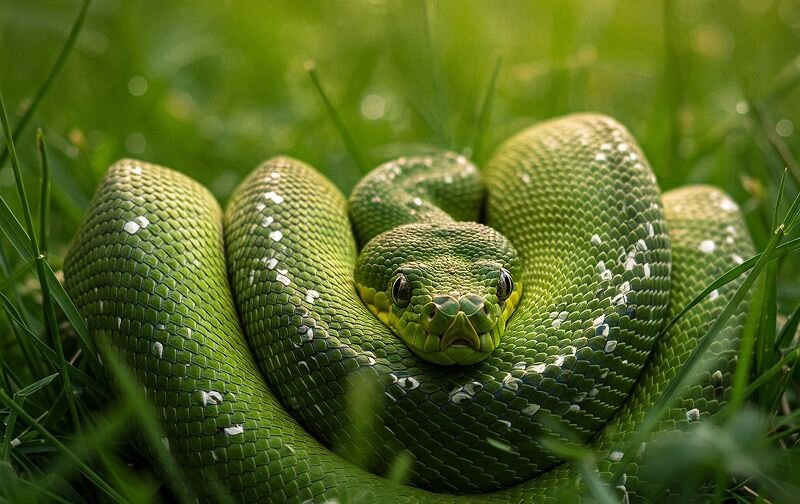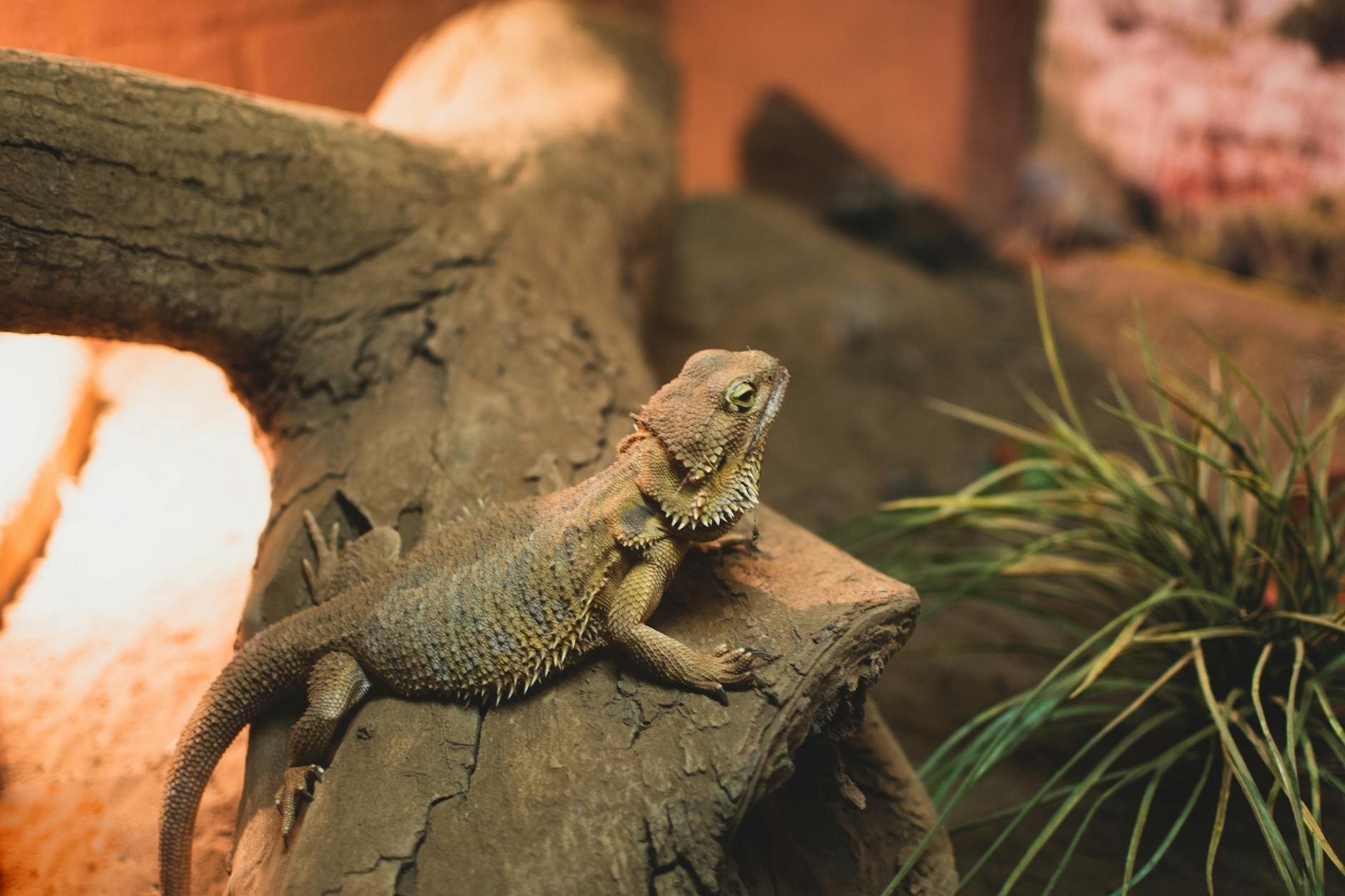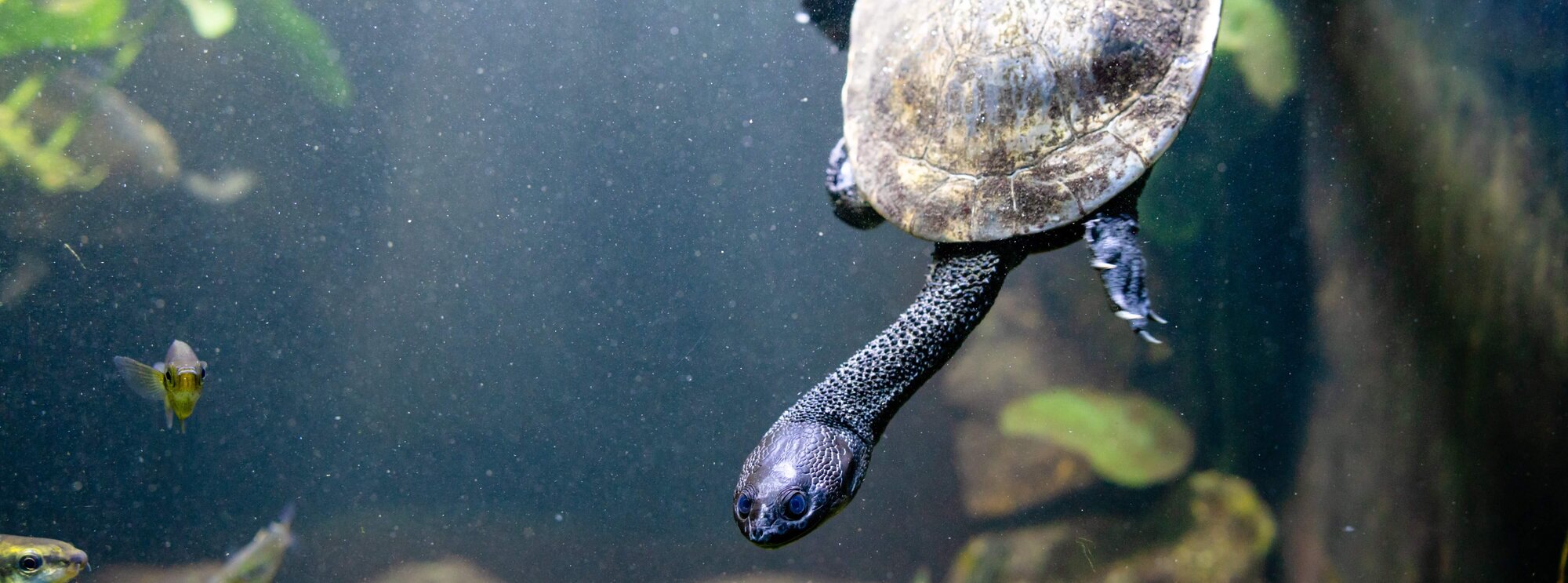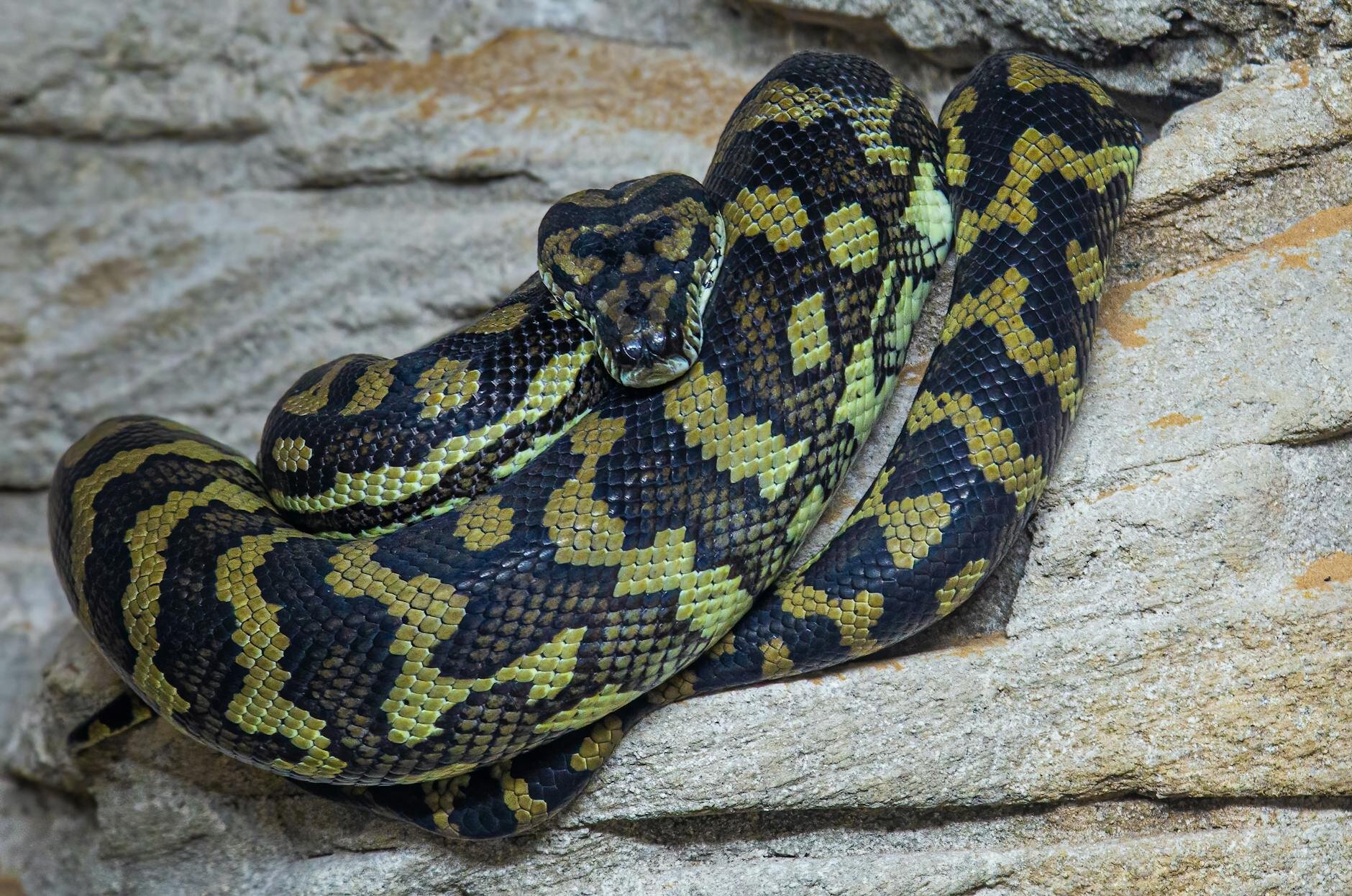Last Updated: 02/12/2025
Reptile Supplements: When and How to Use Them
Reptile nutrition can be tricky. Our vet explains where supplements like calcium can be essential to keep your reptile healthy and prevent common issues like metabolic bone disease. Learn the right way to supplement their diet.
Author: Dr Teagan Lever BVSc (Hons)
Reading Time: 10 minutes - short read
Unlike the heavily researched world of cat and dog nutrition, the details of the nutritional requirements of our reptile friends are much lesser known. Each reptile species has unique feeding habits in the wild, which in many cases can be difficult to replicate in captivity. Nutritional supplements are designed to fill the nutritional gaps in the diets of captive reptile species and in some cases are essential to the health and wellbeing of your pet.
What are the main supplements reptiles need?

Calcium
Calcium plays a number of roles in the body, including growing and maintaining healthy bones, along with muscle and nerve function. Low levels of calcium in the blood is termed hypocalcaemia, and in reptiles most commonly results in a condition called metabolic bone disease.
Hypocalcaemia in reptiles can be caused by inadequate levels of calcium in the diet or low levels of vitamin D3, which is essential for calcium absorption (see below for more on this). Note that hypocalaemia can also be caused by some other medical conditions, like kidney disease, so if your reptile is diagnosed with hypocalcaemia your vet may want to rule out any disease before adjusting the diet and adding any supplements.
What is metabolic bone disease?
Metabolic bone disease (MBD) in reptiles is an umbrella term or syndrome that describes a whole collection of skeletal disorders where the body is forced to use the calcium stored in the bones, leading to them becoming weak and prone to fracture. In reptiles the most common type of MBD is nutritional secondary hyperparathyroidism, which indicates a deficiency of calcium, vitamin D3, UVB exposure or (often) a combination of the above.
Vitamin D3
Vitamin D3 is the active form of Vitamin D, and it is essential for ensuring your reptile can absorb adequate calcium from its intestines. Without enough Vitamin D3, your reptile is at risk of metabolic bone disease, even if there is plenty of calcium in its diet.
The Role of Vitamin D3 and UVB
- Activation: Vitamin D is converted to its active form, D3, in the bloodstream when a reptile's skin is exposed to UVB radiation from the sun.
- Calcium absorption: Vitamin D3 is necessary for the body to absorb and use calcium from food.
- Replicating nature: Reptiles in the wild get all the UVB they need from basking in the sun. This must be replicated in their enclosure.
Providing UVB Light for Your Reptile
- Specialised bulbs: You must provide a specialised UVA/UVB light source with the appropriate strength for the species of reptile in the basking area of the enclosure.
- Natural sunlight: There is no substitute for real sunlight. If possible, also provide your reptile supervised access to real, unfiltered sunlight at least one hour a week.
- Importance of heat: Reptiles cannot adequately utilise UVB light if they are not kept at the right temperature. That's why it is important to understand your reptile species preferred body temperature (PBT) and ensure the UV light is set up adjacent the heat source in the basking area.
Correct UVB Light Setup
- Size: The UVB fluorescent tube should be long enough to span the full length of the enclosure.
- No barriers: Ensure there is nothing between the UVB tube and your reptile. Glass, plastic, and even fine mesh can filter out and reduce UVB exposure.
- Duration: The UV light should be on for approximately 12 hours each day.
- Replacement: UVB bulbs must be replaced at least every 6 months. Their UVB output degrades over time, even if the bulb still produces visible light.
- Monitoring: You can use a UV monitor to measure the bulb's output to know exactly when it needs replacing.
Other vitamins and minerals
There is much we are yet to learn about the nutritional needs of most captive reptile species and a multivitamin and mineral supplement may be helpful in the diet of many reptile pets. A multivitamin can act like a sort of 'insurance' against some of nutritional deficiencies which can occur due to the fact that our captive reptiles are 100% reliant on us for the foods in their diet and unable to eat the natural variety and whole prey items they may come across in the wild. If you do choose to use a multivitamin and mineral supplement in your reptiles diet it is important to only use this once a week to once a month as over-supplementation of certain minerals and vitamins like vitamin D can cause toxicity.
Don't forget to add water! All reptiles require water, even those from desert climates naturally get water from deep below the ground or in the early morning dew. Research the unique water requirements of your pet reptile's species and make sure you meet them.
Lizard nutrition basics

Lizard Diet Recommendations
Multvitamin Supplements
For lizards of all ages, include a multivitamin supplement no more than once a week with an insect meal.
Calcium Supplements
When choosing a calcium supplement, take care to choose one which does not contain vitamin D. Choose a pure calcium carbonate or similar for daily supplementation. Calcium powders that contain vitamin D should not be used more than once a week. Although vitamin D is important, too much can cause illness and there should be plenty available in your dragon's weekly multivitamin dose.
Gut loading feeder invertebrates
Feeder insects should be fed a nutritious diet to ensure that they pass it on to your reptile. They should also be gut loaded with a suitable invertebrate formula for 3-5 days before feeding them to your reptile. The insects should also be dusted in a pure calcium carbonate powder when feeding them to your lizard. You can also dust the insect food in reptile multivitamin supplement powders for 24-48 hours prior to feeding to gut load them.
Pellets
Pelleted diets can be fed in small amounts, in addition to insects and vegetables and provide a concentrated source of calories and nutrients. This can be useful for lizards that are not keen on eating their vegetables. A pelleted diet shouldn’t be the sole source of nutrition, and insects and vegetables should still be provided.
For detailed information, read through our Beginners Guide to Reptile Care, and our Bearded Dragon Care Guide.
Turtle nutrition basics

Wherever you can, try to replicate your turtle's natural diet as much as possible. Different species may be carnivorous, herbivorous or omnivorous, so do your research. Variety is key with feeding turtles, try to offer them something different at every feeding.
Like lizards, turtles are also prone to metabolic bone disease and should receive calcium supplementation oon their food daily to every 3 days depending on their age and feeding frequency. You should focus on feeding your turtle wholefoods like insects, seafood, vegetables and plants depending on their feeding strategy. Whilst pellets and frozen blocks are a convenient option and are often fortified with some nutrients, they are not a single complete and balanced turtle food they can't be relied on alone.
If you are feeding frozen blocks these can be very slightly defrosted, then pressed into a multivitamin or calcium powder before being frozen again prior to feeding. Other food items can be placed in water with calcium powder sprinkled over the top; swirl the water to create a whirlpool which will cause the calcium to collect in the centre, then put your turtle in the water to eat.
Overfeeding in turtles can quickly cause obesity. Young turtles can be fed once daily, most days of the week. Adults should only be fed a small amount every three to four days.
Do snakes need supplements too?

Snakes are a little different as they eat whole prey items, which means they can get everything the need from the body tissues and gut contents of the animals they consume. To keep your snake's diet balanced feed whole prey items such as birds and rodents and go for leaner options wherever possible to help avoid obesity and overfeeding. The frequency of feeding for your snake will vary depending on their age and species. As a general rule hatchlings should be fed weekly, juvenile snakes every 2-3 weeks and adults every 3-6 weeks.
For detailed information specific to your snakes species, read through our guides:
In conclusion, providing the right supplements is a vital part of caring for your pet reptile. A balanced approach using calcium, Vitamin D3, and multivitamins helps to fill the nutritional gaps often found in captive diets.
Correct supplementation is one of the best ways to prevent serious conditions like metabolic bone disease and ensure your scaly friend lives a long and healthy life. If you are ever unsure about your reptile's specific needs, always consult with an experienced reptile veterinarian.
References
Brisbane Birds & Exotics Service. (2018, September 6). Reptile Nutrition [Blog Post]. Retrieved from: https://bbevs.com.au/reptile-nutrition/
Illinois Aces. (2004, July 23) Pet Reptiles Need Vitamin D and Calcium for Bone Health [Blog Post]. Retrieved from: https://aces.illinois.edu/news/pet-reptiles-need-vitamin-d-and-calcium-bone-health
Repashy, A. (n.d.). Supplemental Nutrition For Your Reptiles [Blog Post]. Retrieved from: http://www.reptilesmagazine.com/Supplemental-Nutrition-for-Your-Reptiles/
Lafeber Vet, Reptile & Amphibian Medicine. Retrieved from: https://lafeber.com/vet/reptile-amphibian-medicine/
Articles recommended for you
Our vet authored guide to the benefits of feeding your dog fresh food plus tips and advice for introducing it into their regular menu.
See our guide to protecting your pet from parasites from our vet team.
Thinking of getting a fish? Check out our guide for setting up a tank and home care tips!
Looking to understand horse feeds better? This comprehensive guide covers feeding recommendations for horses of all ages and disciplines.
Does your pet suffer from anxiety? Check out our Vet-guide for treatment options to help your pet.
History
Our experts continually monitor the health and wellness space and we update our articles when new information becomes available.
Mon 1 Dec 2025
Edited by Dr Olivia Clarke BSc BVMS MANZCVS (Unusual Pets, Avian)Medically reviewed by Dr Olivia Clarke BSc BVMS MANZCVS (Unusual Pets, Avian)Dr Teagan Lever BVSc (Hons)
Head Veterinarian, BVSc (Hons)
Pet Circle's Head Veterinarian, Dr Teagan graduated from the University of Queensland in 2010 and went on to work in small animal and mixed practice in various locations around QLD & ACT before joining Pet Circle in early 2016. Dr Teagan has special interests in dermatology, nutrition and preventative health care. She feels privileged to witness the special bond people share with their pets on a daily basis and enjoys forming lasting relationships with pet parents and their fur children.

